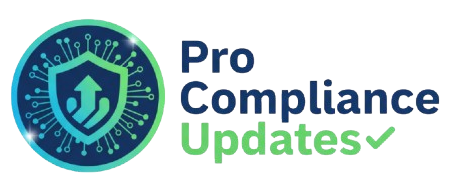How well you communicate that information is critical to getting management’s acceptance of your findings and their agreement with your recommendations. A well-written audit report adds value to your clients by providing information that is :
- Accurate
- Objective
- Clear
- Concise
- Constructive
- Complete
- Timely
In addition to audit reports, these elements can apply to all kinds of writing including :
- Executive summaries
- Fraud investigations
- Consulting reports
- Memos
- General correspondence
WHY SHOULD YOU ATTEND?
The objective of any report is to provide important information to management in the area reviewed. It represents the end result of weeks of reviews, analyses, interviews, and discussions. The quality of that report will have an impact on how well the report is understood and accepted. A report with the best information and recommendations may not be acted upon if the report is poorly written and hard to understand. Poor quality reports can result in management:
- Misunderstanding the information and making the wrong decisions
- Getting too little information and making poor decisions
- Getting too much information and wasting valuable time in making decisions
Ideally, the audit report should provide management with enough information to understand:
- What was done
- What was found
- What management should do
LEARNING OBJECTIVES
The objective of this webinar is to:
1 . A review of the audit standards related to audit report quality
2 . A detailed review of each of the seven report quality elements
- Accurate
- Objective
- Clear
- Concise
- Constructive
- Complete
- Timely
3 . Various quality report exercises
WHO WILL BENEFIT?
- Chief Audit Executives
- Audit Directors
- Audit Supervisors
- Audit Managers
- Staff Auditors
- Government Auditors
- Compliance Auditors
- Internal Control Specialists
- Public Accountants
- Accounting Analysts
- Business Analysts
- Quality Control Specialists
The objective of any report is to provide important information to management in the area reviewed. It represents the end result of weeks of reviews, analyses, interviews, and discussions. The quality of that report will have an impact on how well the report is understood and accepted. A report with the best information and recommendations may not be acted upon if the report is poorly written and hard to understand. Poor quality reports can result in management:
- Misunderstanding the information and making the wrong decisions
- Getting too little information and making poor decisions
- Getting too much information and wasting valuable time in making decisions
Ideally, the audit report should provide management with enough information to understand:
- What was done
- What was found
- What management should do
The objective of this webinar is to:
1 . A review of the audit standards related to audit report quality
2 . A detailed review of each of the seven report quality elements
- Accurate
- Objective
- Clear
- Concise
- Constructive
- Complete
- Timely
3 . Various quality report exercises
- Chief Audit Executives
- Audit Directors
- Audit Supervisors
- Audit Managers
- Staff Auditors
- Government Auditors
- Compliance Auditors
- Internal Control Specialists
- Public Accountants
- Accounting Analysts
- Business Analysts
- Quality Control Specialists
Speaker Profile
 Jonnie Keith
Jonnie Keith
Jonnie Keith has been in auditing for over 50 years. He retired in 2012 as the Assistant General Manager (AGM) of Internal Audit with the Metropolitan Atlanta Rapid Transit Authority (MARTA) in Atlanta, Ga. He served in that capacity for over 10 years and was responsible for administering the overall audit activities. In this position, he was also responsible for the review and approval of all internal audit correspondence including audit reports, executive summaries, internal and external correspondence, etc.Prior to that, he worked at MARTA as the Operational Audit Manager and Senior Contract Compliance Auditor. He also worked at Norfolk …
Upcoming Webinars

Leadership: Strategic Planning and Decision Making

Writing Techniques for Auditors and Risk Management Profess…

Language is Code - Intro to AI - Generative AI - ChatGPT an…

Gossip-Free: Leadership Techniques to Quell Office Chatter

Do's and Don'ts of Giving Effective Feedback for Performanc…

Women’s Hostility to Women at Work: Myth or Reality

4-Hour Virtual Seminar on Audit Proofing your Payroll Opera…

Do's and Don'ts of Documenting Employee Behaviour, Performa…


Retention Starts Here: Stop Losing Your Critical Talent and…


Practice Safe Stress ™: Preventing Burnout While Building R…

Impact Assessments For Supplier Change Notices

Cleanroom, Microbiology and Sterility Assurance Practices f…




Thriving in a Hybrid Workplace: Keys to Leadership and Team…

2-Hour Virtual Seminar on DeepSeek vs ChatGPT AI for CPAs a…

Understanding EBITDA – Definition, Formula & Calculation

FDA Regulation of Artificial Intelligence/ Machine Learning

Construction Lending And Real Credit Administration: Evalua…

Sunshine Act Reporting - Clarification for Clinical Research

How the OBBB Act will Impact Immigration Enforcement! Preve…


2-Hour Virtual Seminar on Outlook - Timesaving Tips and Tri…


Leadership Upskilling: Don’t Just Manage; Lead with Influen…

H-1B Visa Updates and Employer Strategies for 2026

Aligning Your HR Strategy with Your Business Strategy: A Ro…

HIPAA 2025 – Major Changes, Latest Rulings & Guidance

AI for Excel Professionals: Enhancing Productivity with Cha…

Dealing With Difficult People: At Work & In Life

Understanding Accounting for non - Accounting professionals



Excel Power Skills: Master Functions, Formulas, and Macros …
